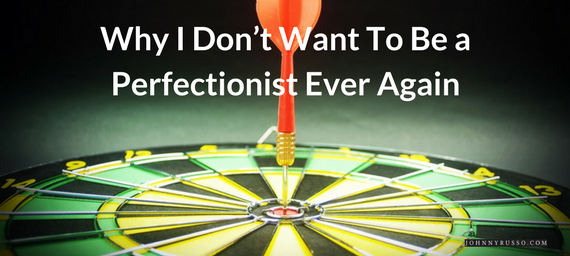
I used to be a perfectionist. Maybe it’s the fact I was in journalism, which is drenched in facts, solid sources, grammar, and trying to never make an error. But early on in my career, I would try and craft the perfect marketing communication, the perfect PR release, the perfect blog post, the immaculate About Us page, the spotless product description, and even the perfect internal email. I would fret over proper grammar (ok, I still do that sometimes), the use of a colon or semi colon, where to put a comma, how many spaces to put between words and paragraphs. I would re-read something and change the tiniest of things, and then wait another day or week to publish and push out work in case I wanted to make more changes. I would ensure each shadow of each product we photographed was 100% perfect. Editing would take a little extra with all the minute changes needed. When you get down to those details, the minutiae, it can all be subjective.
What’s Your Greatest Weakness?
You know when you interview you for a job and the interviewer asks you the question about “what’s your greatest weakness?” or “what do you most need to improve upon?” I would always give the “I tend to be a perfectionist, so some things take longer to complete” answer. I thought it was a decent “negative” response to give. But it’s one I can give no more.
Over the last few years or so, I’ve realized that I would rather get to 80% or 90% of really good, in everything I do, than wait for perfection. I think it makes my life easier, and I think those on my team, past and present, would agree (I can see them nodding as they read this).
To steal Seth Godin’s phrase, just “ship it.” If you wait and wait for the perfect blog post, the perfect strategy, the perfect campaign, the perfect social media content, it’ll likely be too late. I’m a marketer. I would rather gather customer feedback or employee feedback while working on something, then try and finish it perfectly myself. There are exceptions to this. I want my Doctor to be perfect. I want the Pilot flying the plane I’m on to be perfect. I want the house I live in to be built perfectly (in terms of the foundation and structure). Engineers building bridges need to be perfect. But you get the point.
And I think we would all agree on that.
What is Perfection Anyways?
But that begs the question: what is perfection? Is getting to perfect the same thing for you as it is for me? I think we can come pretty close to the same definition, but our worldviews of what perfect is, well, it’s likely different. So why do we spend (waste?) so much time trying to get to perfection when really good will often do?
Take it from me, as both a manager and an employee who has a boss – I prefer really good to perfection. Perfection usually misses deadlines. Perfection usually causes eye rolls (is the brightness of this image 10% too light?). Perfection can be de-motivating – ‘all this really good work, all this back and forth, and you still want the minutest of changes?’ Perfection can be overly obsessive.
I’ve been trying to stop myself in the last few years when my opinion would get in the way, when a small thing like adding a comma is so subjective, or the order of images in an email or a web page. And you know what I’ve done? I leave it as is. I let my team move on to the next project, and I let them ship what is really good, but maybe not always perfect.
I don’t think being a perfectionist is wrong. It’s just wrong for me, at this stage of my career, and at this stage of the digital evolution, where time to market and customer feedback is more crucial than ever.
I’m not a Doctor. I’m not a Pilot. I’m a really good (not perfect) Marketer.
I would love to hear your take on this subject. Do you require perfection in everything you do? Or is really good, good enough on most occasions.



Very good point. I was told that to make a decision and realize as you are implementing it that it needs to be changed or tweaked is better than not making any decision at all. Waiting for things to be perfect means things would never get done. Think of all the inventions that happened by oops !
Yes! Thanks for commenting. Action is the way we can improve and move forward. Non-action is the way we stand still.